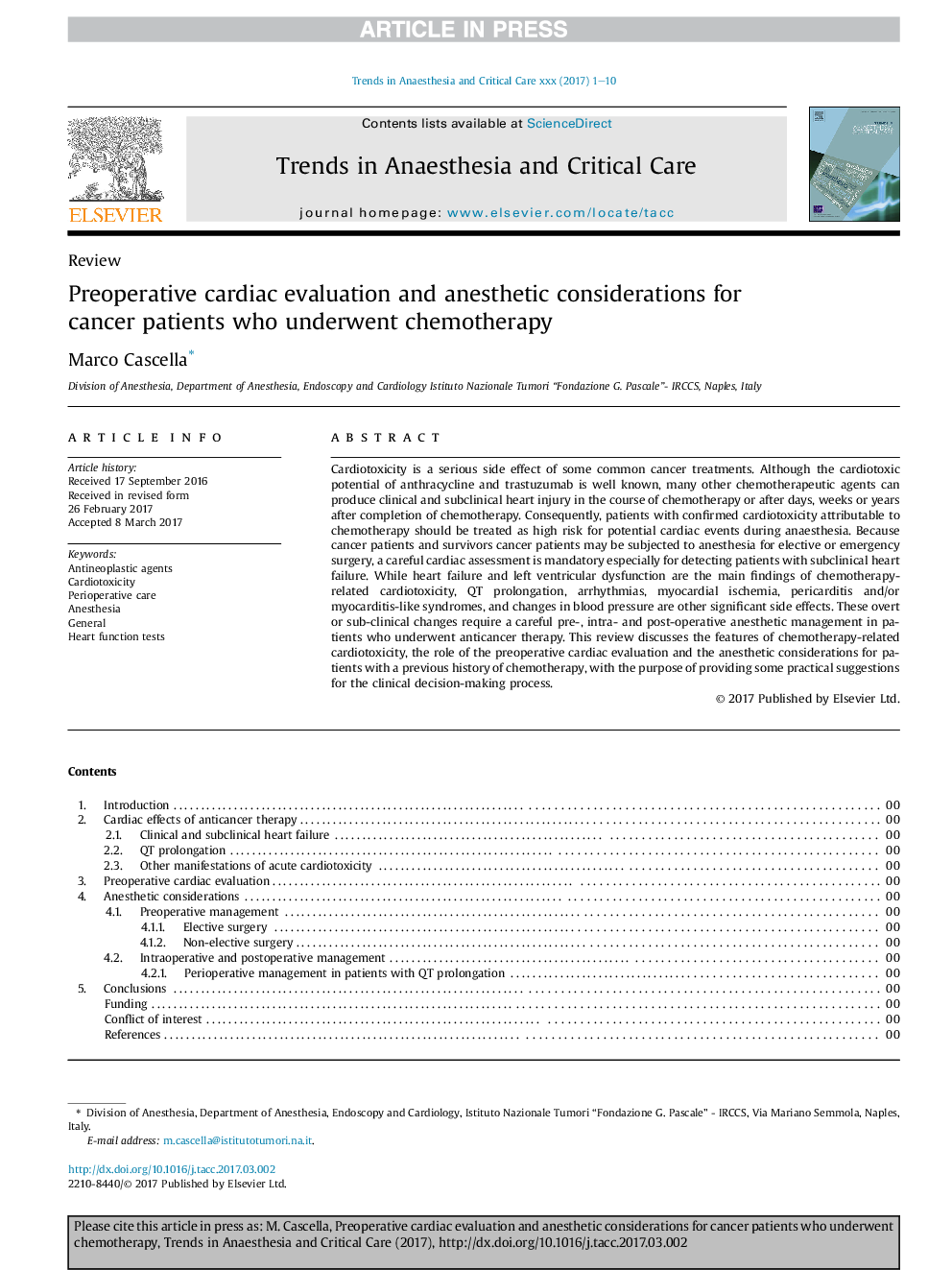| Article ID | Journal | Published Year | Pages | File Type |
|---|---|---|---|---|
| 5584165 | Trends in Anaesthesia and Critical Care | 2017 | 10 Pages |
Abstract
Cardiotoxicity is a serious side effect of some common cancer treatments. Although the cardiotoxic potential of anthracycline and trastuzumab is well known, many other chemotherapeutic agents can produce clinical and subclinical heart injury in the course of chemotherapy or after days, weeks or years after completion of chemotherapy. Consequently, patients with confirmed cardiotoxicity attributable to chemotherapy should be treated as high risk for potential cardiac events during anaesthesia. Because cancer patients and survivors cancer patients may be subjected to anesthesia for elective or emergency surgery, a careful cardiac assessment is mandatory especially for detecting patients with subclinical heart failure. While heart failure and left ventricular dysfunction are the main findings of chemotherapy-related cardiotoxicity, QT prolongation, arrhythmias, myocardial ischemia, pericarditis and/or myocarditis-like syndromes, and changes in blood pressure are other significant side effects. These overt or sub-clinical changes require a careful pre-, intra- and post-operative anesthetic management in patients who underwent anticancer therapy. This review discusses the features of chemotherapy-related cardiotoxicity, the role of the preoperative cardiac evaluation and the anesthetic considerations for patients with a previous history of chemotherapy, with the purpose of providing some practical suggestions for the clinical decision-making process.
Related Topics
Health Sciences
Medicine and Dentistry
Anesthesiology and Pain Medicine
Authors
Marco Cascella,
